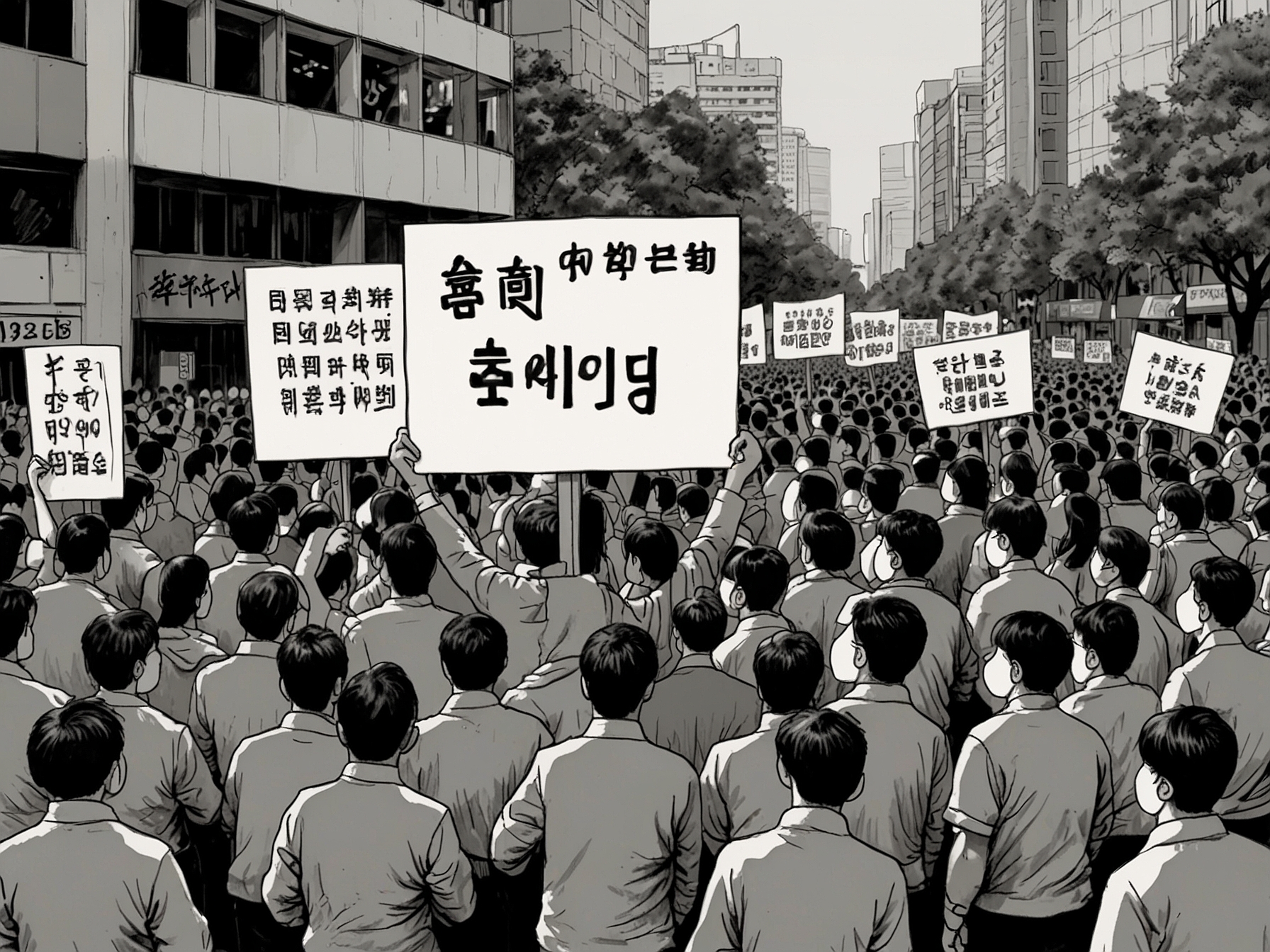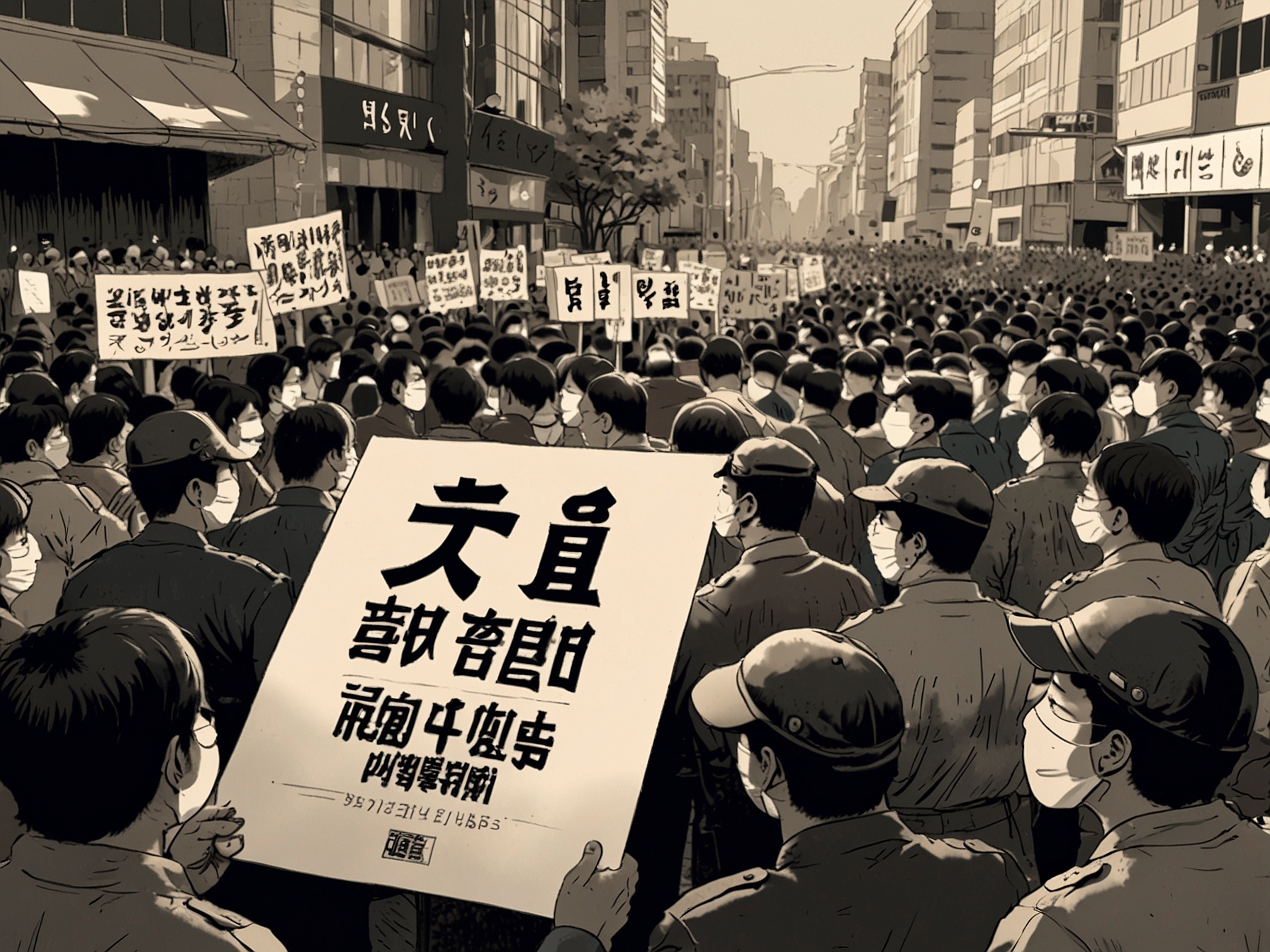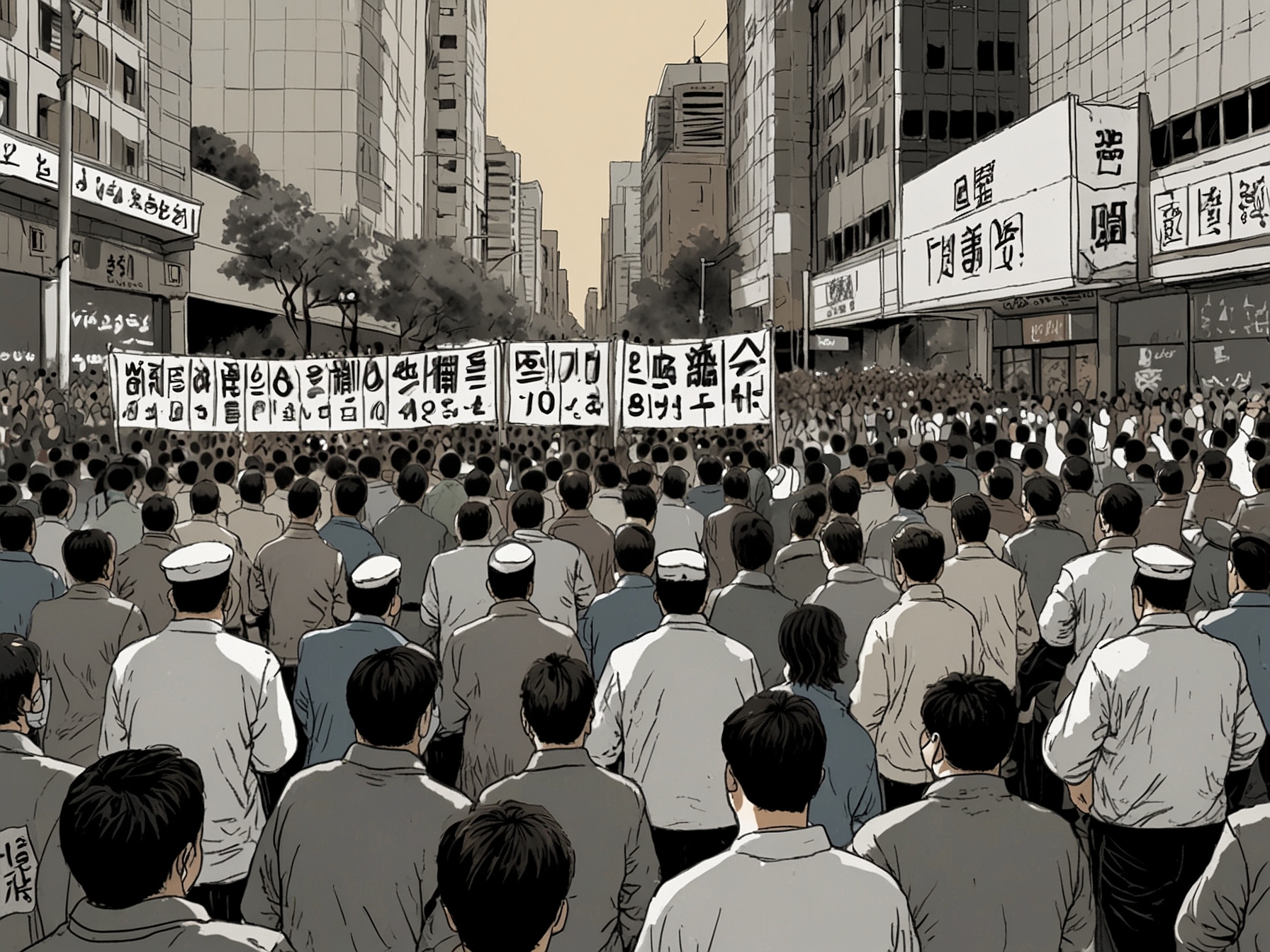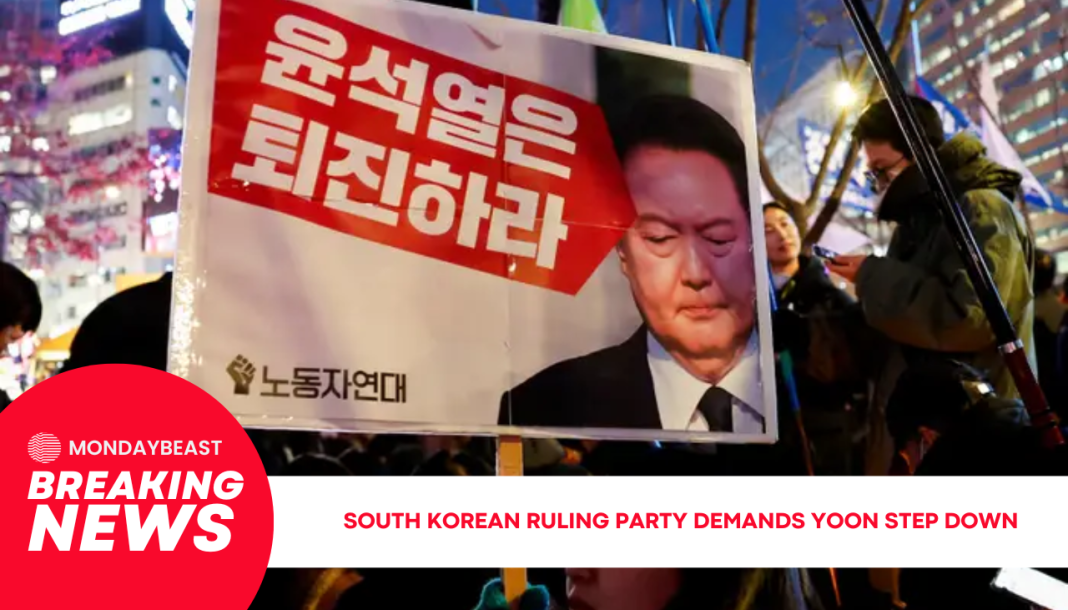When a nation’s leader is faced with a crisis, how do citizens respond? In South Korea, the unexpected return to martial law has sent shockwaves through the public. As protests erupt in the heart of Seoul, voices rise in a united demand for President Yoon Suk Yeol to step down. The very fabric of democracy hangs in the balance. But what led to this pivotal moment?

The ruling party’s stunning demand came from Han Dong-hoon. He heads Yoon’s People Power Party, and his words carry weight. Just one day prior, he promised to block impeachment proceedings, showing a stark change in tone. What has changed? Many believe it is Yoon’s refusal to take responsibility for his controversial actions. Han stated that a swift suspension of Yoon’s duties is necessary. This is a shift that the South Korean political landscape has not seen in years.
Yoon’s declaration of martial law has raised alarms from Washington to the streets of Seoul. Civic unrest has emerged, with thousands of citizens taking to the streets, rallying against what they perceive as autocracy. The question on many tongues now is: can democracy survive this moment? Impeachment looms—only two-thirds of legislative support stands in the way.

Martial law declared in South Korea brings back memories of an era many would prefer to forget. The echoes of history resonate as citizens seek to protect their freedoms. Yoon justified his decision as a measure against threats from North Korea. Did he misinterpret the situation? Was stepping into a historical landmine worth the gamble?
As lawmakers grapple with the implications of Yoon’s actions, his visibility has plummeted. Notably absent from public view, he faces an uncertain future. South Korean citizens are demanding accountability, but what will that mean for their everyday lives? If he is impeached, what comes next?

Polling data reveals a staggering 73.6 percent of respondents support impeachment. That’s a significant number in a democratic society. This raises the stakes for Yoon and his party. The question remains—how far will lawmakers go to ensure that democratic values are upheld?
Military leaders have also found themselves under scrutiny. General Park An-su, who acted as the martial law commander, testified to being blindsided. Was he merely a pawn in Yoon’s broader strategy? More questions loom. The consequences of these decisions touch the entire nation, and its citizens demand transparency in government actions.
With instructions to protect the National Assembly, troops were deployed in an unprecedented manner. Civilian lives were disrupted as people fought back against the military’s efforts to seal off their representatives. But how much do citizens truly understand about the tensions brewing beneath the surface?
As the impeachment vote approaches, all eyes turn to the lawmakers. The opposition holds a majority but needs just a few defections from Yoon’s party. What will it take for members to distance themselves from a president embroiled in this crisis? This unfolding drama is about more than politics. It’s about trust, accountability, and the core values that define a nation.
In the coming days, the situation will only become more tense. If impeachment passes, a verdict from the Constitutional Court will dictate the next steps. The echoes of past struggles and the hope for a democratic future intertwine in this pivotal hour for South Korea. As citizens cry out for change, the world watches closely, awaiting the next chapter in this unfolding saga.




